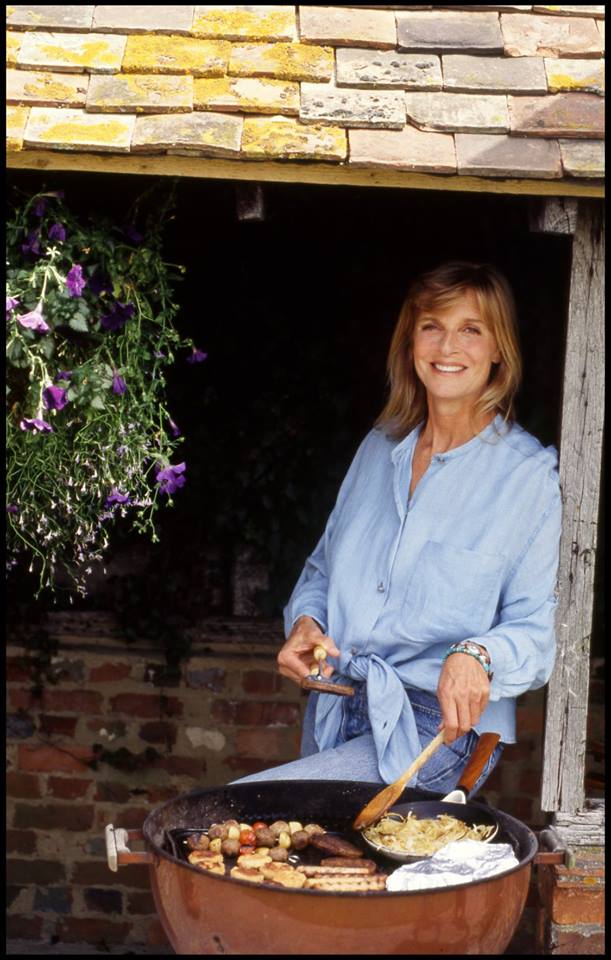Twenty-nineteen is officially the year veganism became cool, or at least the year when food chains realised they could make money by adding jackfruit burgers to their menu and Piers Morgan got performatively angry about a pastry snack. Almost every restaurant, supermarket, and coffee shop now caters in some way to those following plant-based diets, as the trend looks set to continue growing.Amid the hype over fried seitan and burgers that ooze plant-based blood, it’s easy to forget about Linda McCartney Foods—arguably the first mainstream meat-free food brand.
Advertisement
I’m certainly guilty of this. I went vegetarian in my teens, so ate Linda McCartney sausages with mashed potato and some variation of boiled vegetable most weeks (thank you to my eternally accommodating mother!), and basically lived off their cheese and leek pasties during university. My grandparents would stock the freezer with Country Pies if they knew I was visiting. But now that I’ve become a trendy London vegan with grown-up saucepans and several Anna Jones cookbooks, I rarely venture down the Linda McCartney aisle in the supermarket.Linda McCartney Foods, however, is very much still here. Founded in 1991 by Linda McCartney—photographer, musician, and wife of Beatle Paul—it was quickly lauded as one of the most successful celebrity-food crossovers. She started with packaged vegetarian foods that offered the ease and appearance of their carnivorous counterparts (frozen nuggets, burgers, ready meal lasagnes), but were made with dehydrated textured vegetable protein—a rare find in the early nineties. Building on her advocacy for animal rights and the comforting veggie vibes of her bestselling 1989 cookbook Linda McCartney's Home Cooking, the products came with the homey promise of “delicious recipes created in Linda's kitchen.” This appeal has now endured for over 25 years, with the brand expanding its range to include pizza, pasta, roasts, and wraps. Even with increased competition from new vegetarian food brands, sales of Linda McCartney sausages grew by almost 20 percent between 2016 and 2017.
Advertisement
Earlier this month, Linda McCartney Foods released a promotional film championing the memory of its founder, who died in 1998 from breast cancer. It is directed by Mary McCartney, the photographer daughter of Paul and Linda.“The ad is very much about bringing Mum and her roots back into it, so going back to ‘it’s cool to be kind,’” Mary explains. “Back then, if you were veggie, you felt people were making fun of you. It was a bit revolutionary and a bit punk rock—a bit like, ‘We don’t care what everyone thinks about us.’”I’m speaking with Mary at her studio in West London. She is wearing a jumper emblazoned with the letter M—“for MUNCHIES and Mary,” she laughs—and we sit at a round table next to a huge close-up photograph of someone holding a frog. “Those are my mum’s hands,” Mary says, jumping up to adjust the blinds to stop the morning light from fading the print. An assistant brings me a large mug of tea with cashew milk.Alongside her career as a photographer, Mary works with “Dad and Stella”—her fashion designer sister—as a consultant for Linda McCartney Foods, assisting with product development, packaging, and media plans.“I worked on the food brand with my mum when it started and I worked with her on her cookbooks and photography,” she says. “We used to brainstorm things and work on her products.”
“‘Kindness forever.’ Some people shy away from that kind of thing but the heritage I come from, they didn’t.”
Advertisement
Themed around the tagline “kindness forever,” the new film features archive footage of Paul and Linda performing in Wings, cut with shots of vegans, vegetarians, and flexitarians of all ages enjoying Linda McCartney dishes—plus an appropriately adorable piglet. Pretenders frontwoman Chrissie Hynde, an outspoken vegan who was also a personal friend of Linda’s, provides the voiceover, opening with the line: “It’s always been cool to be kind.”“The idea is that it [Linda McCartney Foods] is for everybody who wants it,” Mary says. “I really wanted to cram as many people in there as possible and be like a community. It’s all-inclusive, we’re not trying to be this or that.”Smiling, she adds: “‘Kindness forever.’ Some people shy away from that kind of thing but the heritage I come from, they didn’t.”
It’s a clever catchphrase, harking back to 60s-era peace and love, but also appealing to today’s woke culture that rewards awareness of social and political justice issues (or at least virtue-signalling like you care).“Part of it was to do with that,” Mary says, when I ask whether she thought about woke appeal when coming up with the theme for the video. “Growing up as a vegetarian, it didn't feel like there were many more people like you or it was a bit embarrassing at school dinners—it was always chips and beans—whereas now it feels like there’s a lot of quite exciting people [who are] as outspoken as we were growing up. And it’s allowed.”
Advertisement
Kindness is certainly cool right now, but are Linda McCartney products cool? With the number of vegans and vegetarians rising year-on-year in the UK, the quality and range of meat-free foods has improved tenfold. In 2017, Mintel estimated that the market was worth £572 million, up from £539 million in 2015. Those following plant-based diets can now choose from scarily chicken-like cauliflower "wings" and dairy-free cheese that doesn’t look like something you’d use to grout a bathroom, which kinda lessens the appeal of a plain old soya sausage.Mary, however, isn’t phased by the competition.“We always try to hold onto the fact that loads more competition is a great thing because it’s about there being more [meat-free] options,” she says. “People would start competing with her [Linda] and she was like, ‘brilliant’ because the more the merrier.”While Mary is passionate about promoting meat-free lifestyles, she admits that she isn’t quite as strident as her mother—who, after all, was the woman who inspired Lisa Simpson to go veggie and coined the mantra about not eating anything with a face. Linda’s legacy is basically a vegetarianism starter pack.“She was very passionate, so she would be a bit more like, ‘Why are you eating rotting flesh? Why would you want to eat rotting flesh?’ which is actually a very good point,” says Mary. “She couldn’t help it because she thought, ‘Animals can’t speak so I have to be their voice. They need a few people in the world lobbying for them.’ Some people found it a bit much but she did it from a place of complete kindness and love.”
Advertisement
But I wonder if the current acceptance of vegan diets not as left field identity choice, but just a fairly normal way of consuming food is owed to Linda and her “passionate” views. At a time when huge numbers of people choose to forgo meat and dairy for the month of January and even your Uncle Ken admits that Quorn mince is, actually, pretty good, it’s easy forget just how pioneering Linda was. When she frolicked with sheep on the McCartney family farm and provided British consumers with meat-free options that didn’t involve lentils or strong opinions about hemp, she normalised vegetarianism. And now we have the Greggs vegan sausage roll.“[Linda McCartney products] are not trying to be meat, they’re trying to replace that hole in the plate,” says Mary. “It’s a savoury option that isn’t the side dishes.”Linda McCartney Foods is still pretty pioneering. One of the criticisms of meat-free diets is that they are inaccessible—too expensive for those on low incomes or feeding large families, and involving complicated recipes using hard-to-find ingredients. Linda McCartney products, however, are reasonably priced, easy to prepare, and available in almost any supermarket freezer."My mum’s things were always affordability, accessibility, and just providing solutions. She was always working to make the brand cleaner and better,” Mary says.“It’s really trying to help people out. There’s nothing cynical about it."

